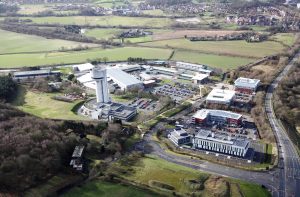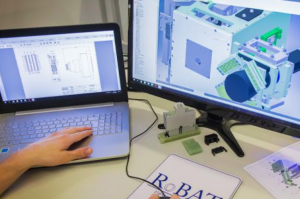Scottish government pledges almost £2m for medical tests featuring Genedrive kits

The Scottish government is investing almost £2m into the phased delivery of two national scale medical testing programmes using two kits made by Genedrive, the Manchester-based molecular testing business which makes medical testing equipment.
Its MT-RNR1-ID and CYP2C19-ID kits are part of the study which was heralded in a speech by Scottish First Minister John Swinney, who said: “The latest innovations in genetic testing will be harnessed to enable better targeting of medications, in cases ranging from recent stroke patients to newborn infants with bacterial infections. Smarter care, better care.”
The kits are used to test newborn babies and stroke victims.
The initial deployment of the programmes is through funding being provided to the Accelerated National Adoption (ANIA) pathway following referral from ANIA to the Scottish Health Technologies Group (SHTG) which carried out two technology assessments that included both the Genedrive CYP2C19 ID kit and the Genedrive MT-RNR1 ID kit.
Approximately £800,000 will fund testing newborn babies with Genedrive’s MT-RNR-ID kit, in a phased national roll-out over 18 months with first clinical testing beginning in October.
Once fully implemented it is expected that more than 3,000 babies per year will receive the MT-RNR1-ID test throughout Scotland.
A total of £1.1m will support interventional CYP2C19 testing in recent stroke patients and while primarily focused on laboratory-based testing with substantially slower turnaround times, Genedrive’s CYP2C19-ID kit will be included for assessment against laboratory testing pathways in Transient Ischaemic Attack (TIA) clinics.
Dr Gino Miele, Genedrive CEO, said: “This announcement from the Scottish government is a welcome commitment to the strategic implementation of pharmacogenetic testing into clinical pathways at national scale in NHS Scotland.
“Aside from enabling significantly better patient outcomes, these interventional testing paradigms offer substantial financial value to pressured healthcare systems.”
Against a backdrop of increasing paradigm shifts from treatment to prevention and speedier, less centralised diagnostics, and also recent UK Government announcements to abolish NHS England as an organisation and loss of 9,000 jobs with accompanying savings of £500m per year, it is noteworthy that CYP2C19 interventional testing alone is estimated to offer one-third of this at approximately £160m per year of value to NHS England.”
He added: “We look forward to working with colleagues in ANIA, and are grateful for their integrated efforts and forward strategic thinking in progressing these programmes at national level, and we welcome other UK nations adopting a similar integrated national approach to avoid introduction of regional healthcare inequalities.
“Genedrive are proud to be at the forefront of enabling the impact of near-patient pharmacogenetic testing and we look forward to updating the market in due course as the contractual and operational planning phases of these programmes are confirmed.”








